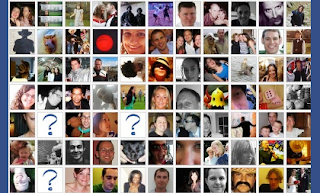A "friend" has been used in many discussions, but nobody is really certain if friendship is real or not. Can anybody tell how many are their real friends? Are all of those Facebook 'friends' really are 'friends' in the strict sense?
Robin Dunbar, professor of evolutionary psychology at Oxford University, thought he'd find out. He wondered whether services such as Facebook really did allow humans to maintain much larger social networks.
His conclusion is both bracing and reassuring: "There is a cognitive constraint on the size of social networks that even the communication advantages of online media are unable to overcome."
Yes, Facebook users might brag about having 150 or even 5,000 Facebook friends, but their true relationship with the majority of these people is essentially insignificant.
Dunbar looked at two UK studies undertaken in the first week of April 2015 and the third week of May 2015. They were not, unlike many studies of social networks, conducted among only students. Instead, Dunbar says they were representative across the 18 to 65 age range. The total sample was 3,375.
The average number of Facebook friends possessed by these people was around 150. (Women have larger social networks than men.)
The crux of the matter was simple. When asked how many "genuine" friends they had on Facebook, people in one sample offered an average answer of 27.6 percent.
When asked, however, how many of these Facebook friends they could depend on during an emotional or social crisis, the respondents said the number was four (actual average 4.1). Around 14 (actual average 13.6), the respondents said, would express sympathy. There was very little age variation in this.
For Dunbar, online activity reflects offline life. He writes in his research report: "The sizes of the two inner friendship circles did not differ from those previously identified in offline samples."
But what about those with a lot of Facebook friends? They have a far more active and loving social life, surely.
Perhaps not: "Respondents who had unusually large networks did not increase the numbers of close friendships they had, but rather added more loosely defined acquaintances into their friendship circle."
As in real life, younger people have larger social networks than older. When you're older, you can usually spot a fake a little more quickly. Usually.
In the end, all everybody has is time. So, as Dunbar says, there is "a relationship between time invested in a relationship and its quality (as rated in terms of emotional closeness)."
The brain can only take so much friendship - and so much Facebook friendship. Emotions can only be shared with a few people. Facebook is, indeed, a time-sink, not a glorious new syncing of souls.
Robin Dunbar, professor of evolutionary psychology at Oxford University, thought he'd find out. He wondered whether services such as Facebook really did allow humans to maintain much larger social networks.
His conclusion is both bracing and reassuring: "There is a cognitive constraint on the size of social networks that even the communication advantages of online media are unable to overcome."
Yes, Facebook users might brag about having 150 or even 5,000 Facebook friends, but their true relationship with the majority of these people is essentially insignificant.
Dunbar looked at two UK studies undertaken in the first week of April 2015 and the third week of May 2015. They were not, unlike many studies of social networks, conducted among only students. Instead, Dunbar says they were representative across the 18 to 65 age range. The total sample was 3,375.
The average number of Facebook friends possessed by these people was around 150. (Women have larger social networks than men.)
The crux of the matter was simple. When asked how many "genuine" friends they had on Facebook, people in one sample offered an average answer of 27.6 percent.
When asked, however, how many of these Facebook friends they could depend on during an emotional or social crisis, the respondents said the number was four (actual average 4.1). Around 14 (actual average 13.6), the respondents said, would express sympathy. There was very little age variation in this.
For Dunbar, online activity reflects offline life. He writes in his research report: "The sizes of the two inner friendship circles did not differ from those previously identified in offline samples."
But what about those with a lot of Facebook friends? They have a far more active and loving social life, surely.
Perhaps not: "Respondents who had unusually large networks did not increase the numbers of close friendships they had, but rather added more loosely defined acquaintances into their friendship circle."
As in real life, younger people have larger social networks than older. When you're older, you can usually spot a fake a little more quickly. Usually.
In the end, all everybody has is time. So, as Dunbar says, there is "a relationship between time invested in a relationship and its quality (as rated in terms of emotional closeness)."
The brain can only take so much friendship - and so much Facebook friendship. Emotions can only be shared with a few people. Facebook is, indeed, a time-sink, not a glorious new syncing of souls.


No comments:
Post a Comment